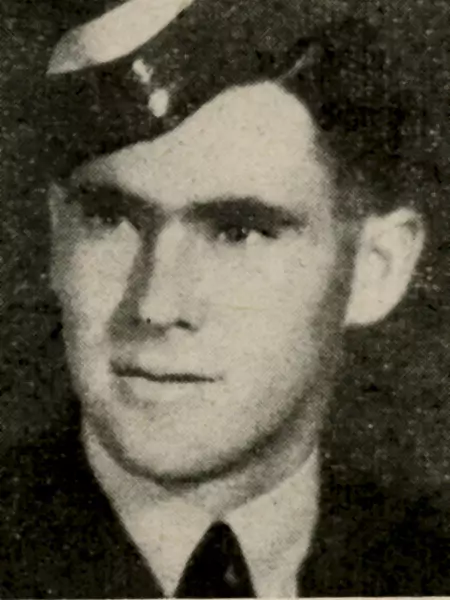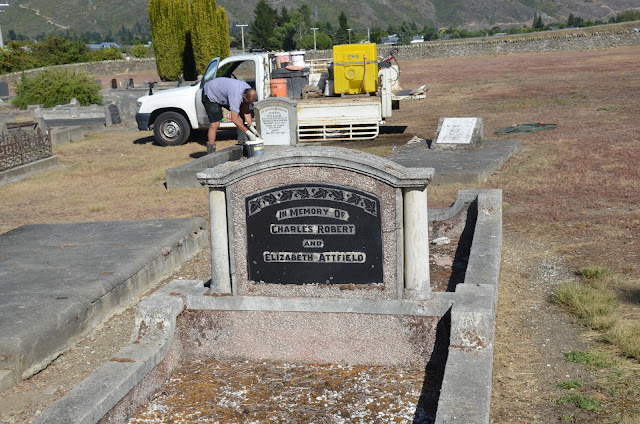This story is presented with the hope that I have found the same Thomas Hardwick through the years in New Zealand newspapers. There was more than one man with the name, and I have included only the stories where the age matches the year for Mr T E Hardwick. If I have made a mistake I apologise, but the story told, I think, is worth the risk.
A young man named Thomas Edwin Hardwick, 18 years of age, who was arrested at Kaikoura by Constable J. Cummings, was brought before Mr H. Howard, J.P., at Blenheim to-day, and charged with that he did break and enter the shop of W. Chappie, at Renwicktown, on the night of September 21st and steal therefrom the sum of £7, and that he did on the following day steal at Langley Dale a revolver valued at £1 10s, the property of John Powell. The case was remanded to Wednesday next. -Marlborough Express, 3/10/1917.
HARDCASE HARDWICK.
Thomas Edwin Hardwick, a mere youth, had pleaded guilty to breaking and entering at Blenheim. His Honor said that it wag difficult to know what to do with prisoner. Since 1913 he had been repeatedly in trouble, and had been ultimately sent to the Wereroa State farm, from where he had escaped. Two years' reformative treatment m Invercargill Goal was his Honor's sentence. -NZ Truth, 10/11/1917.
A boy named Thomas Hardwick, an inmate of the Stoke Training Farm, escaped from the institution last night, taking with him a horse, saddle, and bridle. The police desire to warn people against purchasing any of the stolen property. The lad has previously escaped, and was formerly in a similar institution at Invercargill. -Nelson Evening Mail, 30/6/1919.
The youth Thomas Hardwick, 19 years of age, who escaped from the Stoke Training Farm about a fortnight ago, taking with him a horse, saddle, and bridle, was captured by Constable Fitzsimmons of Wakefield, at Blue Glen station on Sunday. When arrested he had in his possession two rifles and a good supply of ammunition. After escaping from the institution, Hardwick travelled by way of Waimea West, Upper Moutere, Stanley Brook, Kohatu, Kikiwa to Tophouse, which was his first day's journey, a distance of roughly sixty miles. Next day he proceeded to the Raglan, and then made down the Rainbow to Tarndale, where he was blocked by snow. He spent the nights sleeping out, covered only by a military greatcoat, or in shepherds' huts. After spending several days shooting rabbits, upon which he subsisted, Hardwick returned to Blue Glen, where he came into the arms of the law. Hardwick is at present undergoing two years' reformatiye treatment for breaking and entering after escaping from the Stoke Training Farm on a previous occasion, and will now probably be sent to Invercargill to complete his term. -Colonist, 15/7/1919.
SERIES OF CRIMES
TERMS OF IMPRISONMENT
(Per Press Association). Invercargill. Feb. 20.
At the Supreme Court Thomas Hardwick, aged 35, who had been declared an habitual criminal in 1923, appeared for sentence on three charges of breaking and entering. Mr Justice Kennedy remarked that the offences were part of a long series of crimes in Southland, Central Otago and the West Coast. As some time had elapsed since prisoner had been released, and he had kept free from prison, his Honour said he would refrain from declaring him an habitual criminal. Sentences of two years’ imprisonment on one charge and three years on each of the others were imposed. -Feilding Star, 21/2/1934.
Thomas disappears from newspaper coverage for a while after the above report. His name appears in Army records as having served in 20 Battalion in the Second World War. Perhaps Army service "straightened him out."
His gravestone describes him as "A loving husband and father," so he might have made the decision that he could have marriage or crime and chose the way of family.
TRUCK SLIDES OVER BANK
ONE MAN KILLED, TWO INJURED
(New Zealand Press Association) DUNEDIN, July 13.
Thomas Edwin Hardwick, aged 52, was killed, and five men were injured, one seriously, when a truck slid off a frosty road three miles from Earnscleugh, Central Otago, this morning. The seriously injured man, George Malloy, single, was admitted to the Dunstan Public Hospital, Clyde. His condition is described as dangerous. Also admitted to hospital was Noel Vercoe. He suffered shock and a possible broken jaw. The other men were taken to hospital, but were discharged. The truck, owned by the Ministry of Works, was going along the Burma road to the Fraser river power project, about 8.30 a.m., when the accident occurred. There were 12 men in the truck. When the truck slid, most of the men jumped clear. Mr Hardwick jumped clear, but a stone dislodged by the truck, struck him. The truck left the road and fell 20ft on to jagged rock. -Press, 14/7/1953.
Alexandra Cemetery.


















